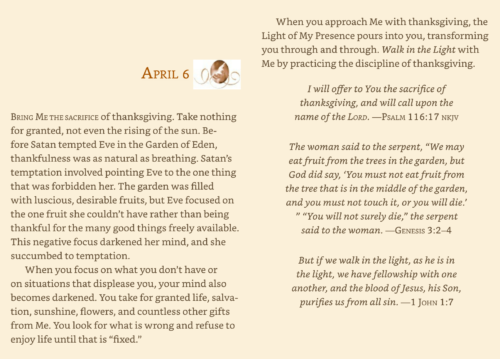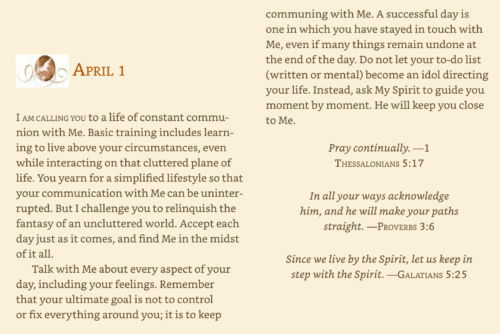Love Poured Out
For Cynthia Bourgeault, the heart of Jesus’ ministry is summed up in the way he radically surrenders himself for the sake of love:
[Jesus’] idea of “dying to self” was not through inner renunciation and guarding the purity of his being, but through radically squandering everything he had and was. In life he horrified the prim and proper by dining with tax collectors and prostitutes, by telling parables about extravagant generosity, by giving his approval to acts of costly and apparently pointless sacrifice such as the woman who broke open the alabaster jar to anoint him with precious oil; by teaching always and everywhere, “Lay not up for yourselves treasures on earth.” John’s disciples disapproved of him for drinking and banqueting; the Pharisees disapproved of him for healing on the sabbath. But he went his way, giving himself fully into life and death, losing himself, squandering himself, “gambling away every gift God bestows.” It is . . . love utterly poured out, “consum’d with that which it was noursh’d by,” in the words of Shakespeare’s sonnet—that opens the gate to the Kingdom of Heaven. This is what Jesus taught and this is what he walked.
And he left us a method for practicing this path ourselves, the method he himself modeled to perfection in the garden of Gethsemane. When surrounded by fear, contradiction, betrayal; when the “fight or flight” alarm bells are going off in your head and everything inside you wants to brace and defend itself, the infallible way to extricate yourself and reclaim your home in that sheltering kingdom is simply to freely release whatever you are holding onto—including, if it comes to this, life itself. The method of full, voluntary self-donation reconnects you instantly to the wellspring; in fact, it is the wellspring. The most daring gamble of Jesus’ trajectory of pure love may just be to show us that self-emptying is not the means to something else; the act is itself the full expression of its meaning and instantly brings into being “a new creation”: the integral wholeness of Love manifested in the particularity of a human heart. [1]
Howard Thurman (1900–1981) likewise understood the heart of Christian spirituality as surrender to God, which paradoxically opens our lives up to a greater freedom that we could not otherwise have imagined:
I surrender myself to God without any conditions or reservations. I shall not bargain with [God]. I shall not make my surrender piecemeal but I shall lay bare the very center of me, that all of my very being shall be charged with the creative energy of God. Little by little, or vast area by vast area, my life must be transmuted in the life of God. As this happens, I come into the meaning of true freedom and the burdens that I seemed unable to bear are floated in the current of the life and love of God.
The central element in communion with God is the act of self-surrender. [2]
Scripture: Mark 14:3-9 CEB
Artist: Woonbo Kim Ki-chang
“Woman Anoints Jesus’ Feet” by Woonbo Kim Ki-chang (1914-2001). Learn more about the artist here.
Jesus was at Bethany visiting the house of Simon, who had a skin disease. During dinner, a woman came in with a vase made of alabaster and containing very expensive perfume of pure nard. She broke open the vase and poured the perfume on his head. Some grew angry. They said to each other, “Why waste the perfume? This perfume could have been sold for almost a year’s pay and the money given to the poor.” And they scolded her.
Jesus said, “Leave her alone. Why do you make trouble for her? She has done a good thing for me. You always have the poor with you; and whenever you want, you can do something good for them. But you won’t always have me. She has done what she could. She has anointed my body ahead of time for burial. I tell you the truth that, wherever in the whole world the good news is announced, what she’s done will also be told in memory of her.”
Devotion
All four gospels speak of a woman anointing Jesus. Mark simply calls her “a woman” who owned a jar filled with costly perfume while Luke calls her a “sinner,” implying sexual immorality.
Was she someone of means who could easily afford to waste such a valuable substance with one extravagant gesture, or was she a woman whose financial situation was precarious but who nevertheless prodigally anointed Jesus?
Either way, when the disciples scolded her, Jesus proclaimed that her act of generosity would be remembered whenever the gospel was proclaimed.
Sarah Ryan and Mary Bosanquet were early Methodist preachers who were very different from one another. Sarah was an uneducated servant who was “married” three times without being divorced; Mary was well-read and belonged to a well-to-do family. From the Methodists, Sarah discovered that Christ’s grace was freely offered to her, too, and recognizing God at work in her, John Wesley appointed her housekeeper of the New Room.
Later she mentored the younger Mary Bosanquet, and they formed a household with other Methodist women to nurture and educate the poorest children of their area. Similar to the disciples, Mary’s family felt her inheritance wasn’t being used wisely, but with Sarah’s help, Mary continued to pour out her resources freely on others, reflecting in her journal:
I would be given up, both soul and body, to serve the members of Christ. My firm resolution was to be wholly given up to the church, in any way that he pleased.
For reflection
- What treasure do I possess that I want to recklessly share with Christ and with others?
- How can I honor Jesus with that which means most to me, despite objections or misunderstandings?
Prayer
Lord Jesus, Lamb of God, you freely poured out your precious life for us after first joyfully accepting the extravagant offering of the woman who anointed you with expensive nard. Fill us with your Holy Spirit of generosity so that we, too, may follow the example set by her and by Mary Bosanquet and Sarah Ryan, giving without counting the cost, being motivated by nothing but love of you and of neighbor. May it be so! Amen.
The Rev. Dr. Donna Fowler-Marchant is an elder in the North Carolina Conference currently serving a circuit just outside London in the Methodist Church in Britain. She’s the author of a wonderful new book titled, Mothers in Israel: Methodist Beginnings Through the Eyes of Women. Media contact: Joe Iovino, United Methodist Communications


